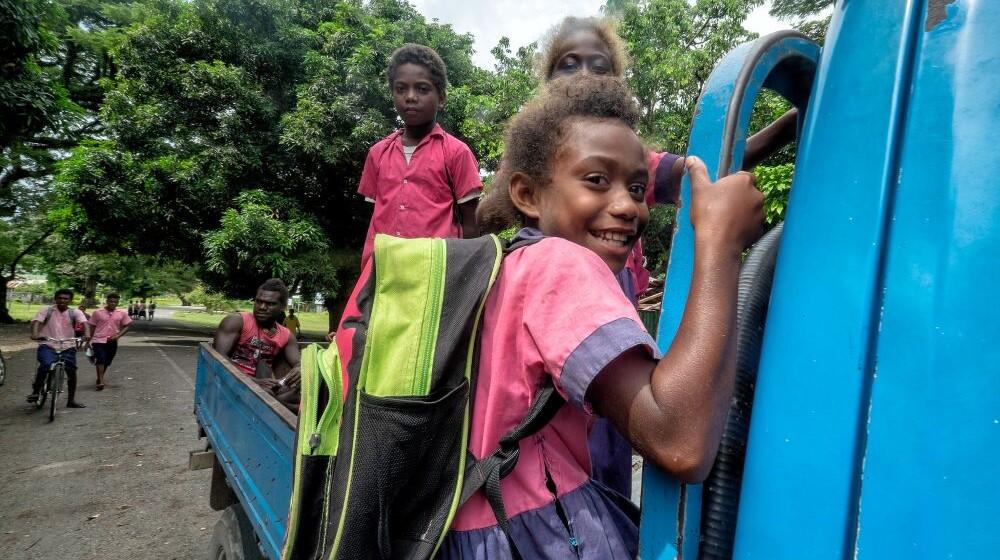GUADALCANAL, Solomon Islands - Grace Fokara, 23, had long been looking for a way to do something meaningful in her community. Solomon Islands remains one of few remaining least developing countries (LDC) in the Pacific, and the country’s population is constantly growing – now over 720,000, with young people below 25 years old accounting for almost 60 per cent. Grace wanted her generation of young people to be more effective and productive contributors to the socio-economic development of the country, rather than just being the recipients of the benefits of development.
Grace had heard about and indeed witnessed many of her fellow teenage girls - and boys - confused and struggling in the transition period from childhood to adulthood when they go through significant changes, both in terms of their bodies and minds. Some girls got pregnant unintentionally, while still prepared physically and mentally. Grace wanted to do something useful and helpful for these young people, so that they could know more about their bodies and gain life-skills with which to be more respectful to themselves and to others, and make conscious, informed, healthy and respectful choices about relationships - so that they could grow into responsible civic adults.
“I want to help inform and engage other young people on sexual and reproductive health (SRH),” she thought. However, Grace, back then, did not know where to begin - SRH is a topic that has typically not been discussed, either in school or outside of school where she lives. She was also nervous in general about public-speaking in front of others and leading discussions. A five-day training organized by the United Nations Population Fund (UNFPA) Pacific, changed Grace’s life.
UNFPA-trained youth advocates are transforming youth health-seeking behaviours
Grace is not alone in her dream of making an impact in the community. Twenty-two other young people from her hometown of Guadalcanal, Solomon Islands, joined the five-day training organized by UNFPA Pacific. The training focused on “Family Life Education” (FLE) and developing practical skills to serve as a ‘youth advocate’ in the community to inform and empower other young people to access SRH information and services. This workshop was carried out in partnership with the Solomon Island Planned Parenthood Association (SIPPA),as part of UNFPA Pacific’s Transformative Agenda programme (TA), a AUD 30 million multi-year, multi-country, comprehensive programme (Phase 1: 2018-2023) aimed at achieving zero unmet need for family planning in six Pacific countries including Solomon Islands, along with Fiji, Kiribati, Samoa, Tonga and Vanuatu, funded by Australia’s Department of Foreign Affairs and Trade (DFAT).
Having completed the training, Grace now feels confident to speak out, even making presentations before others. She and 22 other trainees have started working with the youth in their respective communities. The ‘Youth Advocates’ receive a small amount of funds to organize activities every month on their own. They have already reached out to around 180 other young people aged between 14 and 24 – who had previously never received any FLE that is internationally-aligned and designed for out-of-school youth. The 23 trainees including Grace provided referral cards to these young people, to indicate easy access for them to youth-friendly health services at facilities where trained service providers are available. Within just three days, 40 of these young people already sought out SRH services such as counselling about relationship and sexuality, access to contraception, and testing for HIV and other sexually transmitted infections (STIs).
Why do young people in Solomon Islands need family life education?
“Such initiatives, like Family Life Educations, are critically needed for Solomon Islands, as teenage pregnancy is a concern to the country’s future,” says Jack Martin, the International Planned-Parenthood Federation Sub Regional Office for the Pacific (SROP) Senior Program Officer for Youth/Comprehensive Sexuality Education, who helped provide the training. The adolescent birth rate in Solomon Islands remains high, at 78 births per 1,000 women aged 15-19. “Culturally, like in many other parts of the world, here in Solomon Islands too, talking about sex is considered taboo,” Martin said. “They don’t usually discuss sex at home. And at school, children may learn bits and pieces about sex and sexuality - for example in the biology class they will learn a bit about STIs or anatomy - but such knowledge does not translate into practical skills that young people can and should use to navigate during their adolescent years.” These required skills include critical thinking, decision-making, communication, interpersonal, and relationship skills, Martin highlights.
Further, those young people who are not in school often suffer from an even greater lack of access to any kind of relevant information about SRH. This is why, through the DFAT-funded Transformative Agenda programme, continued through Phase 2 from 2023, UNFPA Pacific plans to continue to focus on “out-of-school FLE” as well, in addition to school-based initiatives, so as to reach as many young people as possible such as married adolescent girls, youth with disabilities, youth engaged in sex work, youth with diverse sexual orientation, gender identity, and expression, homeless youth, migrants, and those who had to drop out of school because of climate change induced disasters, and other in remote hardest-to-reach areas.
“Since they received our training,” Martin said, “so many young people are showing up at the youth space at the clinic, not just to show up, but to actually seek additional information and access services. We are excited to see their behavioural change, and committed to doing more to transfer more knowledge and information to these young people.” The training is now targeting all provinces in Solomon Islands, with 10 communities and 25 youth advocates per province. Similar trainings are also planned in all the rest of the countries covered under the Transformative Agenda programme.
Iori Kato, UNFPA Pacific Director and Representative, said, “Comprehensive Sexuality Education/Family Life Education has the potential for a tremendous positive impact in the Pacific, because in general the adolescent and youth in the region lack access to quality information and services on sexual and reproductive health. UNFPA Pacific is committed to assisting Pacific countries to ensure that both in- and out-of-school youth are provided with sufficient, age-appropriate knowledge and life-skills so that young people can fulfil their rights, choices and full potential.”
Youth advocates share their experience
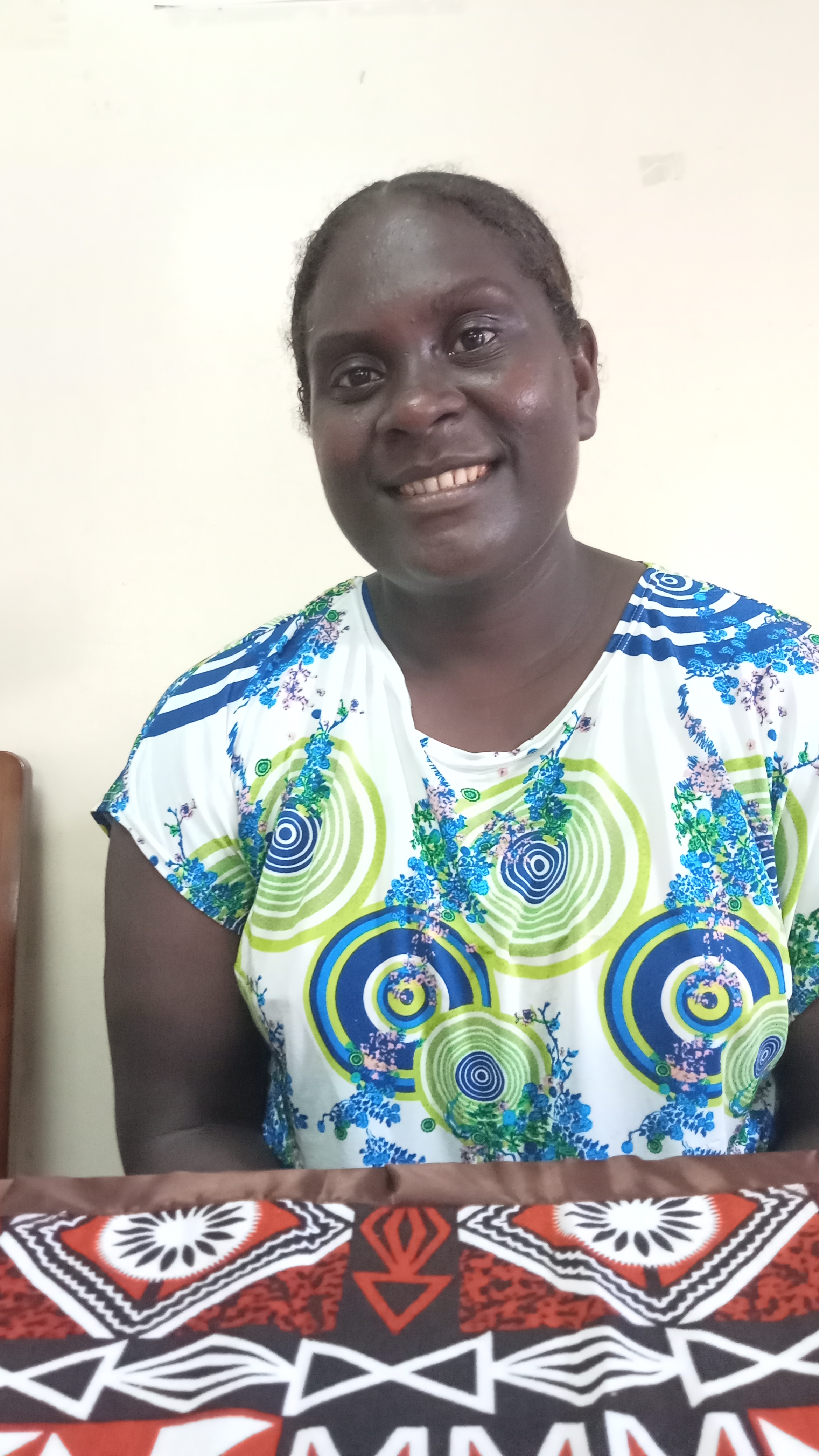
Grace Fokara, 23
Why did you choose to do the FLE training?
I wanted to build my capacity, equip myself with skills and increase my knowledge on Family Life Education.
What’s the most interesting you learned?
How to facilitate and work with my peers in the community, and also how to create a safe space when working with young people.
How has the training impacted you?
The training helped me a lot. Before, I was afraid to talk with young people but now I am more confident to stand up in front of everyone and even do my presentations. I feel more empowered with the new information I learned during the five days of training.
What’s next?
My plan now is to share this information with my community peers and also my family, or even in my community as a whole.
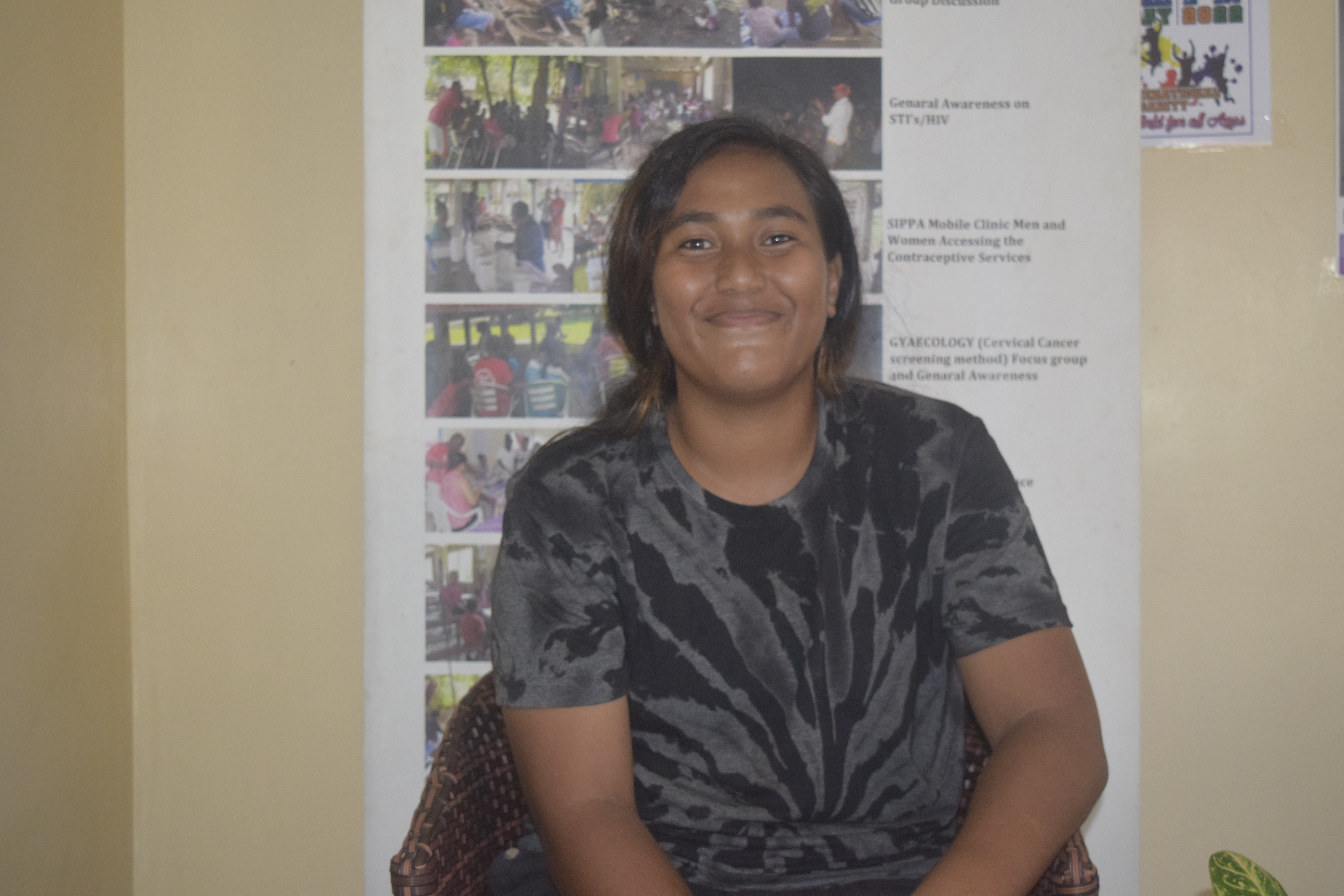
Marlina Epale Sania, 22
Why did you choose to do the FLE training?
I agreed to attend this training, because I see a value in it to help me through the rest of my life.
What’s the most interesting you learned?
I learned a lot of interesting things about how to facilitate young people’s connection and plan sessions, how to create a safe space for them, how to ensure trigger warnings.
How has the training impacted you?
I am more confident to talk with young people and brave enough to present sensitive sexual and reproductive health topics to my peers.
What’s next?
My plan at the moment is to go out and have sessions with my peers in my community. My first topic will be teenage pregnancy, as it is one of the main issues that young people in my community face.
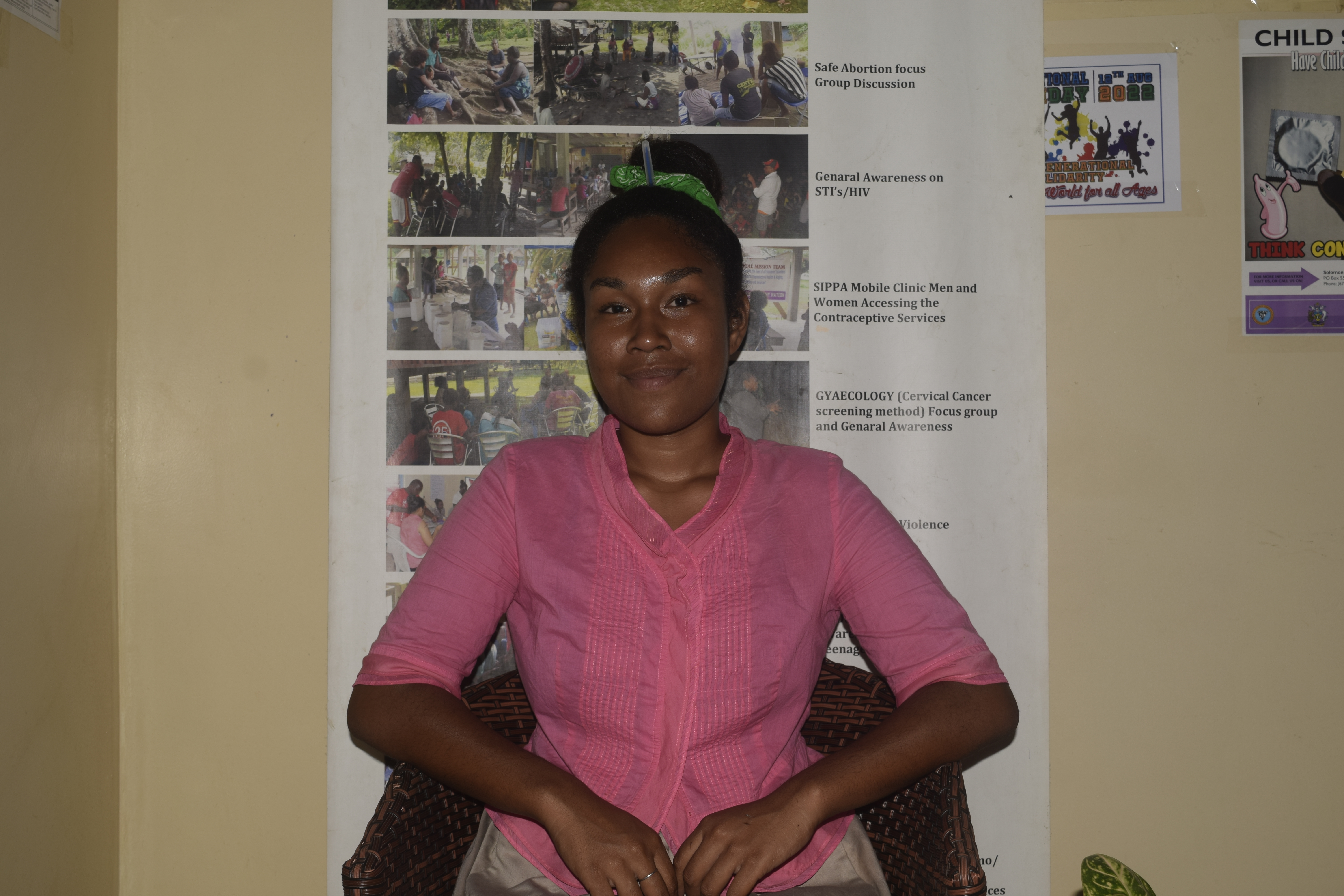
Phylusian Robertson, 21
Why did you choose to do the FLE training?
I chose this training because I wanted to gain more knowledge and skills about FLE to become an effective youth advocate. I believe this training will help me to grow as a role model for young people.
What’s the most interesting you learned?
How to create a safe environment for young people, know how to use trigger warnings and how to be a confident facilitator.
How has the training impacted you?
This training gave me confidence to openly talk to young people about sensitive topics around sexual and reproductive health and rights (SRHR), like condom use, menstruation, STIs and adolescent pregnancy.
What’s next?
My plan now is to go out and conduct one-on-one sessions and focus group discussions with my peers. I also want to help my peers to access clinical services such as at SIPPA.
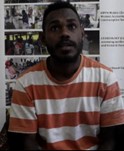
Rodney, 24
Why did you choose to do the FLE training?
I chose to take on this training because I wanted to gain some skills and knowledge on reproductive health. What’s the most interesting you learned?
I gained new information that I can share with other youth, like session planning, and using condoms for safer sex.
How has the training impacted you?
I am happy to have completed the training, because I am now confident as an active youth advocate. One big change before and after the training is that, now I have confidence not only to approach and talk with other youths, but talk to them about these [sensitive] topics in my community.
What’s next?
As a youth advocate, I plan to work with youths in my community, to help them out. I have a work plan for one-on-one sessions and focus group discussions, based on SRHR topics that were covered during the training.

